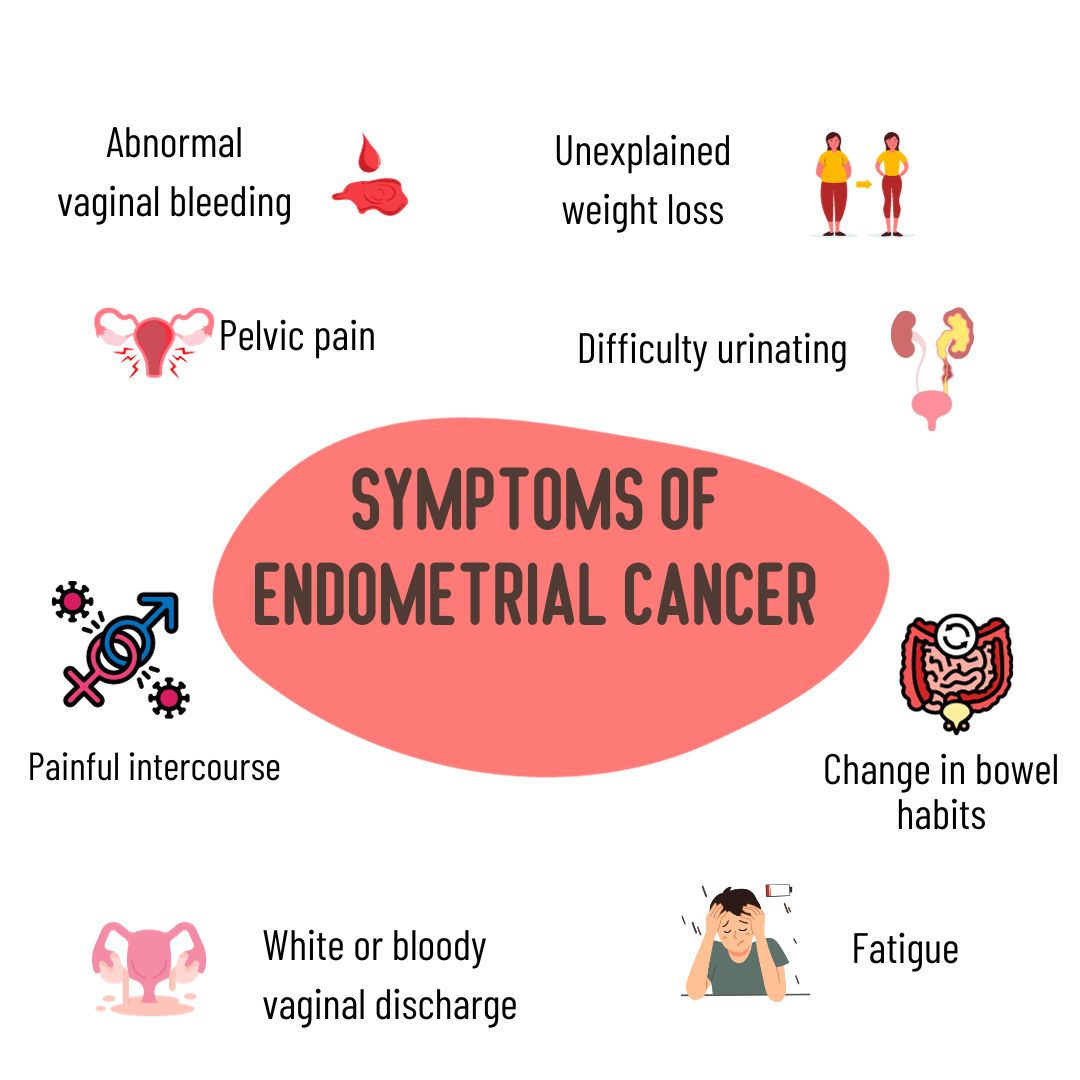Endometrial cancer, also known as uterine cancer, develops in the lining of the uterus (endometrium) and is the most common type of cancer affecting the female reproductive system. While endometrial cancer can be a serious diagnosis, advancements in medical science have led to improved outcomes through early detection, effective treatment options, and preventive measures. Let’s delve into the key aspects of endometrial cancer, including its causes, treatment, and precautions for prevention.
Causes of Endometrial Cancer:
The exact cause of endometrial cancer is not fully understood, but several factors may increase the risk of developing this condition. These include:
- Hormonal Imbalance: Endometrial cancer is often linked to an imbalance between the hormones estrogen and progesterone. High levels of estrogen, without enough progesterone to balance its effects, can lead to abnormal growth of the endometrial lining.
- Obesity: Excess body weight, particularly abdominal fat, is associated with a higher risk of endometrial cancer. Fat tissue can produce estrogen, which may stimulate the growth of the endometrium.
- Age: Endometrial cancer is more common in postmenopausal women, with the majority of cases diagnosed after age 50.
- Hormone Replacement Therapy (HRT): Long-term use of estrogen-only hormone replacement therapy, without progesterone, may increase the risk of endometrial cancer.
- Hereditary Factors: Some genetic conditions, such as Lynch syndrome, can predispose individuals to endometrial cancer.
Treatment Options for Endometrial Cancer:
The treatment approach for endometrial cancer depends on various factors, including the stage of the cancer, the patient’s overall health, and their preferences. Common treatment options for endometrial cancer include:
-Surgery: The primary treatment for endometrial cancer is often surgery to remove the uterus (hysterectomy) and surrounding tissues. In some cases, lymph nodes may also be removed.
-Radiation Therapy: Radiation therapy uses high-energy beams to kill cancer cells or shrink tumors. It may be used before or after surgery, or in cases where surgery is not an option.
-Chemotherapy: Chemotherapy involves the use of powerful drugs to kill cancer cells or stop them from growing. It may be used in combination with surgery or radiation therapy for advanced-stage endometrial cancer.
-Hormone Therapy: Hormone therapy may be recommended for women with advanced or recurrent endometrial cancer that is hormone receptor-positive. This treatment aims to block the effects of estrogen on cancer cells.
Precautions and Prevention:
While not all cases of endometrial cancer can be prevented, there are steps women can take to reduce their risk:
- Maintain a Healthy Weight: Aim for a healthy weight through a balanced diet and regular exercise. Obesity is a significant risk factor for endometrial cancer, so maintaining a healthy weight can help reduce your risk.
- Use Hormone Therapy Wisely: If you are considering hormone replacement therapy to manage menopausal symptoms, talk to your healthcare provider about the risks and benefits. Combination hormone therapy with estrogen and progesterone may be less likely to increase the risk of endometrial cancer.
- Attend Regular Check-ups: Attend regular gynecological check-ups and screenings, including pelvic exams and Pap smears. Early detection of endometrial cancer can lead to more effective treatment and better outcomes.
Endometrial cancer is a complex disease with various risk factors, treatment options, and preventive measures. By understanding the causes, treatment modalities, and precautions outlined above, women can take proactive steps to protect their health and well-being. Regular screenings, healthy lifestyle choices, and open communication with healthcare providers are essential in the fight against endometrial cancer. With continued research, education, and access to quality healthcare, we can strive towards reducing the burden of endometrial cancer and improving outcomes for women everywhere.





Comments